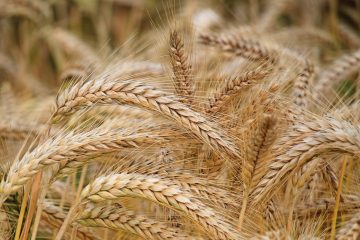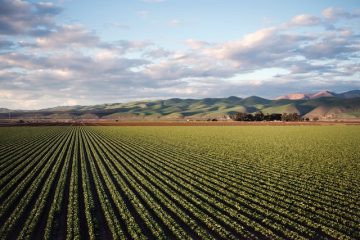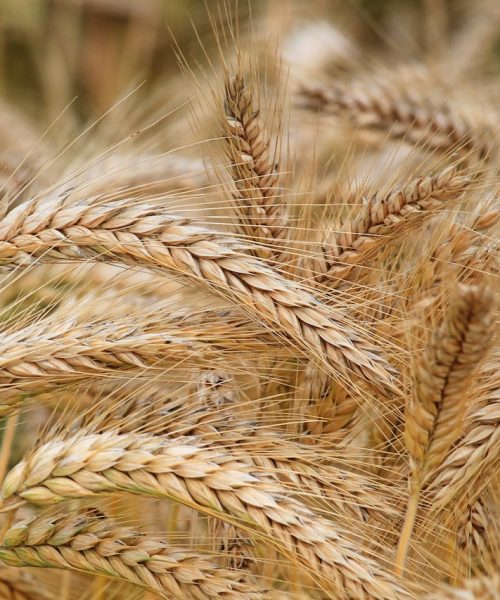Whether you are a full-time farmer or a part-timer, you need to understand the rules around the Farm Tax in Canada. While full-time farmers are automatically eligible for the tax, part-time farmers can claim losses on only a portion of their farm business expenses. The tax also applies to the sale of goods produced on the farm.
Part-time farmers don’t automatically qualify for farm tax
If you’re a part-time farmer, it’s important to remember that you can’t automatically claim the farm tax in Canada. However, you can claim some expenses related to your farming business. Generally, you’re allowed to deduct about $17,500 from your farm income in a given year. Part-time farmers can also carry forward losses from past years for a maximum of 20 years.
The Income Tax Act doesn’t clearly define a part-time farmer, but it does list the specific tax breaks available to different types of farmers. As a result, both part-time farmers and full-time farmers can benefit from many specific farm tax breaks.
In order to maximize your eligible tax deductions, you should work with a tax professional who specializes in farming. He or she will be able to maximize your deductions and minimize your tax liability. A tax professional will also be able to help you understand the various tax laws that affect farming.
Full-time farmers can deduct farm business expenses
Agricultural producers can deduct all business expenses related to the farming operation from their farm taxes in Canada. This includes expenses such as advertising, marketing, and promotional materials. Farmers can also claim expenses related to veterinary care, breeding, and other expenses related to their farms. They can also claim costs associated with fencing and other improvements to their farmland. Interest on loans and premiums to the Crop Insurance Program are also deductible.
A farm business can also claim expenses for the use of a home office. To be eligible, the space should be at least 100 square feet. Other expenses that can be deducted include the rent of a building, pasture, or land used for the farming business. The amount of these expenses depends on the value of the assets. In addition, it should be noted that some expenses cannot be deducted.
Other expenses that can be deducted include electricity related to farm properties. Expenses for agricultural machinery and equipment can be deducted if they are used to operate the farm. Farmers must keep receipts of these expenses for six years after the last Notice of Assessment. They must also maintain separate records for their farmhouse and other properties.
A farm business can also include costs associated with subcontracting. These costs are deductible, even if the farmer does not pay the subcontractor. Subcontractor fees may qualify as employee wages. In some cases, unpaid subcontractors may face penalties and interest. Additionally, expenses related to renting or purchasing farm equipment can be deducted. The costs of freight and delivery are also deductible.
Small farms must have more paperwork and are considered a business. Expenses must be considered business-related if they exceed two percent of the AGI. Small farms must also be run for profit or to earn an income.
Part-time farmers can only claim a portion of farm losses
Part-time farmers can only claim a certain amount of farm losses on their taxes. The maximum deduction is $17,500 for any one year. However, part-time farmers may carry over these losses for a total of 20 years. Part-time farmers are not expected to turn a profit with their farm, so the losses are deducted as direct expenses.
According to the CRA, part-time farmers are not entitled to all their farm losses. Their claim for losses depends on the amount of capital they invested in farming, the level of income from both sources, and how much time the taxpayer spent pursuing both farming and another source of income. They also have to consider their regular mode of living and future intentions.
Full-time farmers can deduct all of their farm expenses. This includes office supplies, stamps, livestock purchases, seeds, feed, fertilizer, pesticides, and more. In addition, they can report any losses from other sources, including other businesses. In addition, losses from other sources can be carried forward for up to 20 years.
Part-time farmers should strive to satisfy the CRA requirements. They should keep meticulous records of the hours they spend on their farm. They should also hire individuals to help them with different aspects of their operations. They should also minimize non-farming capital expenditures. Any funds earned through other occupations should be used on the farming operation or should be traceable.
HST registrations
There are two different ways to register for HST in Canada. Generally, you must be registered for the HST if you are selling farmland in Canada. You must register with the CRA, if you are selling farmland that you use primarily for farming. If you aren’t registered, you should do so before you buy farmland. You can use the registration to avoid paying HST in the future.
HST registrations must be made with the Canada Revenue Agency (CRA) before you sell goods or services. The government of Canada has provided some basic information for HST registrants. You must also register for the HST if you want to make a profit from your products.
In Canada, the GST and HST are applied to most sales. Except for sales of zero-rated products, you should register for the GST/HST. The list of zero-rated goods and services is long. Nevertheless, you should collect and remit the tax on the sales you make. In addition, you must file regular HST returns. You can use the HST registration questionnaire provided by the CRA to determine if you need to register for HST. You may also register for HST if you sell insurance premiums on livestock or agricultural property in Canada.
The tax is applicable to farm operations in Ontario. It is a small business rate, which means that businesses with farm income of less than CAD 500 thousand can apply. This tax rate makes it possible for small to medium-sized farms in the province to reinvest in their operations. The federal portion of the HST is 5%, while the Ontario portion of the tax is 8%. Together, these taxes make up 13.2% of farm income.
To collect HST in Canada, businesses must register with the CRA. You can do this online through the Business Registration Online program. Once you register, it is important to maintain good records.
Reporting farm operations as a business reduces the taxpayer’s liability
If you’re farming, it may be a good idea to report farm operations as a business to reduce your liability. The IRS looks for evidence that you’re largely relying on farm income. If you have a significant amount of non-farm income, the IRS may think you’re trying to cheat the system. In such cases, you need to re-evaluate your financial situation.
The most important thing to remember when filing taxes is that your primary goal isn’t to avoid taxes altogether. In fact, you should try to minimize your tax burden and minimize your expenses. It’s essential to keep accurate records and work with a tax advisor if you want to achieve this.
Reporting farm operations as a business allows you to deduct certain business expenses from your gross income. The exact timing of these deductions depends on your accounting method. For example, if you purchase a truck to transport supplies and equipment, you can deduct gas, oil, license tags, insurance, and depreciation on that vehicle.





























